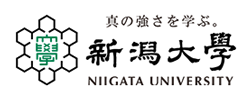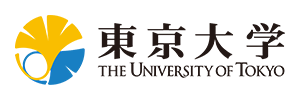Information
One of the most challenging research subjects in modern physics is elucidating the nature of interacting quantum systems.
Strongly interacting quantum systems have been extensively studied in various fields of physics, including nuclear physics,
quantum chromodynamics (QCD) of quarks and gluons, and more recently in cold atoms,
where dilute atomic gases are cooled down to nano–Kelvin temperatures.
The theme of this program is to achieve a unified understanding of strongly correlated few–
and many–body quantum systems across these fields: cold atoms, nuclear physics, and QCD.
To achieve this goal, we host outstanding theorists who are actively studying these broad fields.
By combining their knowledge and specialized methods–such as effective field theory, accurate few–body calculations,
and quantum field theory–we aim to investigate the conditions under which strongly correlated few– and many–body
quantum systems exhibit the same behavior and become universal.
This investigation particularly targets few–body Efimov physics and systems
with a few impurities immersed in a many–body quantum medium.
Since the quantum impurity problem is also relevant for electronic transport in solids,
our project will contribute to designing future high–performance quantum devices based on strongly correlated electrons.
Date
Wednesday, September 4, 2024 – Thursday, September 5, 2024
Venue
TOKYO ELECTRON House of Creativity, 3F, Lecture Theater, Katahira Campus, Tohoku University [Access]
Capacity
Onsite: 60 (First–come–first–serve basis, registration required)
Invited Speakers
Chris H. Greene (Purdue University)
Hans W. Hammer (Technische Universität Darmstadt)
Dam Thanh Son (University of Chicago)
Speakers
Tatsuya Amitani (Tokyo Institute of Technology)
Tokuro Fukui (Kyushu University)
Lucas Happ (RIKEN)
Atsushi Hosaka (Osaka University/Japan Atomic Energy Agency)
Tetsuo Hyodo (Tokyo Metropolitan University)
Tomona Kinugawa (Tokyo Metropolitan University)
Pak Hang Chris Lau (Osaka University)
Kazuya Mameda (Tokyo University of Science)
Pascal Naidon (RIKEN)
Kazuki Oi (Tohoku University)
Oryu Shinsho (Tokyo University of Science)
Hiroyuki Tajima (The University of Tokyo)
Wren A. Yamada (RIKEN iTHEMS)
Shigehiro Yasui (Nishogakusha University)
Registration
Registration deadline: Wednesday, July 31, 2024, 16:00 (JST)
– Closed
Time Schedule [Sep. 02, 2024 Updated]
- Wednesday, September 4, 2024
- 09:25 – 09:30
- Opening Remarks
- Shimpei Endo (University of Electro–Communications)
Keisuke Fujii (University of Tokyo)
Masaru Hongo (Niigata University)
Daisuke Yoshida (Tohoku University)
- 09:30 – 10:30
- Chris H. Greene (Purdue University)
- Invited talk: New perspectives, connections, and generalizations of Efimov physics
- 10:30 – 11:00
- Coffee Break
- 11:00 – 11:30
- Pascal Naidon (RIKEN)
- Closed–channel parameters of Feshbach resonances
- 11:30 – 12:00
- Lucas Happ (RIKEN)
- Lifetimes of three–body resonances: dimensionality and mass ratio
- 12:00 – 13:30
- Lunch Break
- 13:30 – 14:30
- Hans W. Hammer (Technische Universität Darmstadt)
- Invited talk: Halo Nuclei and Multi–Neutron Correlations
- 14:30 – 15:00
- Tokuro Fukui (Kyushu University)
- Uncovering the mechanism of chiral three–nucleon force in driving spin–orbit splitting
- 15:00 – 15:30
- Coffee Break
- 15:30 – 16:00
- Tetsuo Hyodo (Tokyo Metropolitan University)
- Compositeness of near–threshold s–wave resonances
- 16:00 – 16:30
- Tomona Kinugawa (Tokyo Metropolitan University)
- Compositeness of near–threshold states with Coulomb plus short–range interaction
- 16:30 – 17:00
- Wren A. Yamada (RIKEN iTHEMS)
- Spectra and Time Evolution of Unstable Hadronic States by the Mittag–Leffler Expansion
- 17:00 – 18:00
- Free Discussion
- 18:30 –
- Reception Banquet for Workshop Participants
(Details will be provided on–site)
- Thursday, September 5, 2024
- 09:30 – 10:30
- Dam Thanh Son (University of Chicago)
- Invited talk: Self–bound bosonic droplets
- 10:30 – 11:00
- Coffee Break
- 11:00 – 11:30
- Atsushi Hosaka (Osaka University/Japan Atomic Energy Agency)
- Coexistence of extended and compact structures –Omega(2012)–
- 11:30 – 12:00
- Shigehiro Yasui (Nishogakusha University)
- QCD Kondo effect for isolated heavy quark: quantum impurity with condensate and resonance
- 12:00 – 13:30
- Lunch Break
- 13:30 – 14:00
- Hiroyuki Tajima (The University of Tokyo)
- Tripling fluctuations and peaked speed of sound in three–color fermions
- 14:00 – 14:30
- Kazuki Oi (Tohoku University)
- Universality of Efimov states in cold atoms with dipole interaction
- 14:30 – 15:00
- Oryu Shinsho (Tokyo University of Science)
- A New Quantization of Particle Transfer Potential from Atom–Molecular Systems to Quark–Gluon Systems and a New Definition of Three–Body Force
- 15:00 – 15:30
- Coffee Break
- 15:30 – 16:00
- Tatsuya Amitani (Tokyo Institute of Technology)
- Effective field theory of quantum Hall systems with Galilean invariance
- 16:00 – 16:30
- Kazuya Mameda (Tokyo University of Science)
- Gauge invariance of rotating magnetized matter and sign–inversion of magnetovortical charge due to Landau diamagnetism
- 16:30 – 17:00
- Pak Hang Chris Lau (Osaka University)
- Imaginary potential of Polarons near the critical point
- 17:00 – 17:05
- Closing Remarks
- Shimpei Endo (University of Electro–Communications)
Keisuke Fujii (University of Tokyo)
Masaru Hongo (Niigata University)
Daisuke Yoshida (Tohoku University)
Co–hosted by
In cooperation with
- Niigata University
- Purdue University
- University of Chicago
- University of Electro–Communications
- University of Tokyo
- Technische Universität Darmstadt
- Grant–in–Aid for Scientific Research(B)「強相関物質における不純物粒子の量子ダイナミクスの普遍性の研究」






